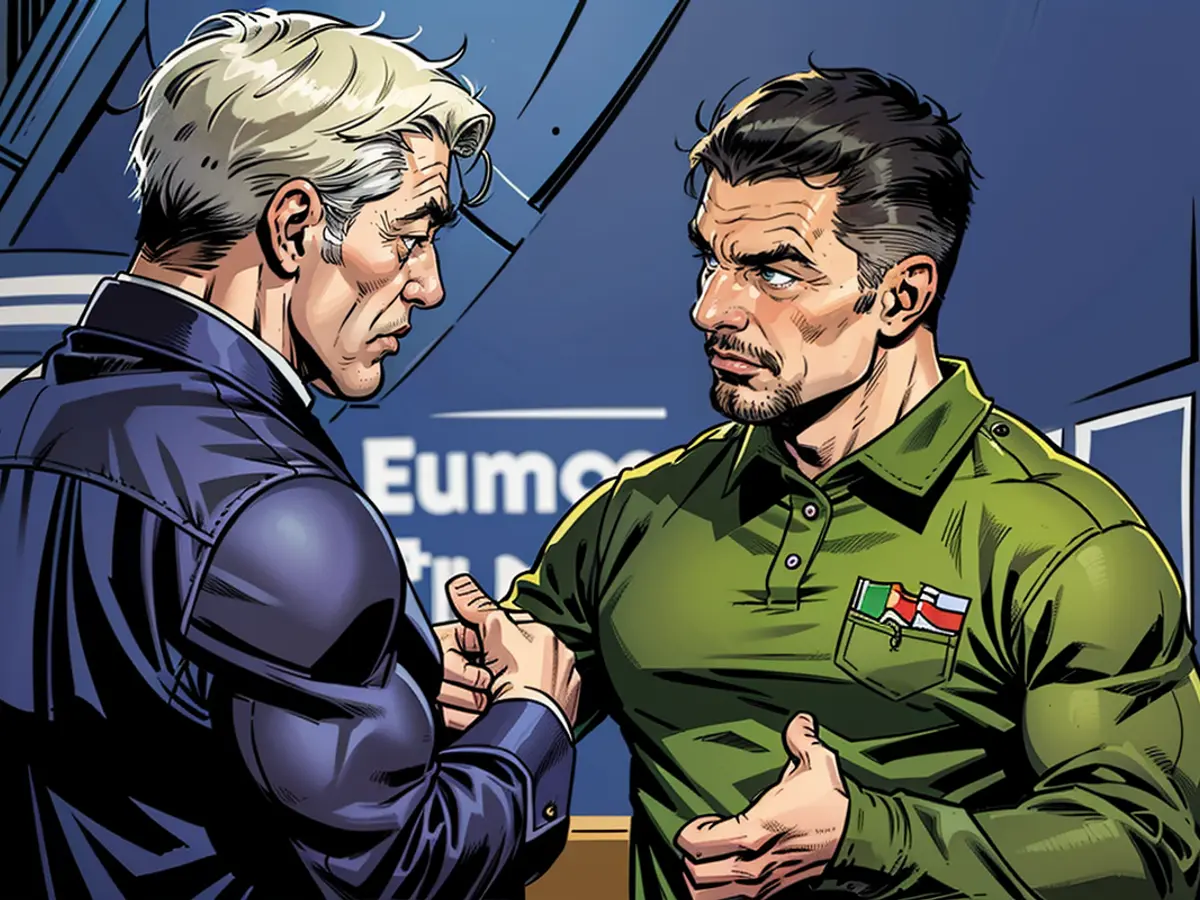Hungary and Ukraine fighting over oil
Ukraine halts part of remaining Russian oil supplies to the West. Hungary and Slovakia fear a resource crisis and involve the EU. Reality is less dramatic, but for Ukraine, the transit stop could backfire.
Hungary continues to pursue a special path even two and a half years after the start of Russia's war against Ukraine. Prime Minister Viktor Orban has met with Russian President Vladimir Putin twice in a year. His country continues to receive Russian gas, has delayed several EU sanctions packages against Russia, and now threatens to block further Brussels aid payments for Ukraine. The reason is an oil dispute between Hungary, Slovakia, and Ukraine.
So far, Hungary has been receiving its Russian oil via the southern branch of the Druzhba pipeline, which runs from Russia through Ukraine. However, Kyiv has stopped the transit of oil from the Russian company Lukoil through Ukrainian territory. Hungary and Slovakia therefore filed a complaint with the European Union.
"Ukraine may have hoped that sanctioning Lukoil would lead to Hungary and Slovakia's concessions in Ukraine policy. However, we see that this is not the case," summarizes Kai-Olaf Lang, political scientist at the German Institute for International and Security Affairs (SWP), in the ntv podcast "Wieder was gelernt". "Pressure creates counter-pressure. The governments in Budapest and Bratislava have made it clear that they see this at least as an unfriendly act that causes energy-related problems in both countries."
Limited enthusiasm in Brussels
The EU has long imposed import bans on Russian oil, but there are exceptions for countries that are particularly dependent on their geographical proximity. This applies to Hungary and Slovakia.
Therefore, Budapest and Bratislava raise the alarm against the transit stop for Lukoil. They accuse Kyiv of violating an association agreement with the EU, which states that energy transit should not be hindered, unless the Ukraine acts out of security interests.
Kyiv argues in the same way. However, Hungary and Slovakia have a different opinion. Now, Brussels is in charge. "Of course, the European Commission must ensure that the EU association agreement with Ukraine is implemented in accordance with the rules. But at the same time, we also have a political dimension," analyzes Eastern Europe expert Lang in the podcast. "The enthusiasm in Brussels and among most EU member states to show solidarity with Hungary and Slovakia here is likely to be limited." Therefore, Brussels is initially playing for time, Lang is convinced, in the hope that both sides will reconcile without major EU intervention.
Unlikely oil crisis
Economically, Hungary and Slovakia have a lot at stake. Above all, Hungary has maintained close ties with Russia for years and is still dependent on Moscow's energy. More than two-thirds of Hungary's oil comes from Russia. Half of it comes from Lukoil, which corresponds to about a third of the country's total oil imports.
Hungarian Foreign Minister Péter Szijjártó says that Ukraine's decision threatens the oil supply of Hungary and Slovakia. Are Budapest and Bratislava facing an oil crisis? For that, the Lukoil share of total oil imports is too small overall. Moreover, Hungary has oil reserves for about three months, comments Hungarian energy expert Attila Holoda in ZDF.
Yes, Russia remains an important energy partner for Hungary and Slovakia, Lang says in the ntv podcast. However, these two countries have also started to diversify their sources. "Not as dramatically or dynamically as, for example, Poland or the Baltic states, but Hungary has taken some steps to diversify its oil and gas supply," Lang explains.
Hungary and Slovakia do not aim for a full-scale economic decoupling from Russia. Unlike the Czech Republic, which is still supplied with Russian oil via the Druzhba pipeline under a special permit. The refineries there, owned by the Polish Orlen Group, plan to completely stop using Russian oil by 2025. Hungary and Slovakia, however, cite the costs of such a move. "The switch to processing other types of oil, along with other economic factors, is given more weight than politically motivated rejection of Russian imports," Lang analyzes.
Oil transit ban could backfire on Ukraine
Similarly, Slovakia's situation is not far off. "We do not want to be held hostage by Ukrainian-Russian relations. This senseless sanctions issue must be resolved as soon as possible," Slovak Prime Minister Robert Fico rails.
In reality, however, Slovakia is still far from an oil crisis. The affected refinery processing Lukoil supplies has been preparing for the transit stop for some time, energy analyst Boris Tomciak notes on Slovak state television. They are currently increasing purchases from other Russian exporters like Taftneft and Rosneft. Former Economy Minister Karel Hirman emphasizes that the Lukoil contract was due to expire at the end of the year anyway.
Kai-Olaf Lang does not expect the oil dispute to escalate further. The focus now is on finding a middle ground. Otherwise, the transit ban could backfire on Ukraine. "Viktor Orban is a tough and experienced player. And one should know in Kyiv that any attempt to stir up trouble will likely be met with a strong reaction," Lang warns.
The EU will work behind the scenes to keep Ukraine from escalating the situation, Lang believes. Brussels is not interested in blocking financial aid and arms shipments, or making Ukraine's EU accession more complicated.
- Amidst the dispute, the European Commission has a crucial role to play in ensuring that the EU association agreement with Ukraine is implemented fairly, considering both the rules and the political dimensions of the situation.
- If Ukraine continues to persist with actions perceived as unfriendly by Hungary and Slovakia, it could potentially face strong reactions from Prime Minister Viktor Orban, who is known for his tough negotiations and strategic maneuvers.








